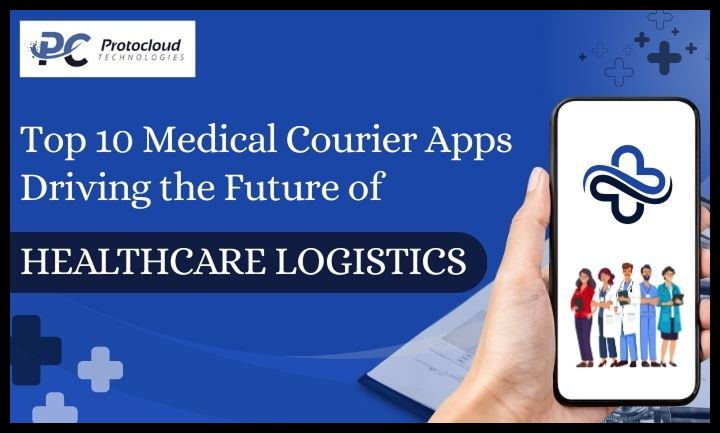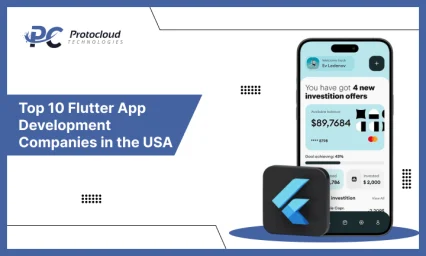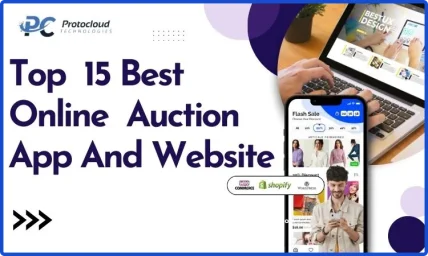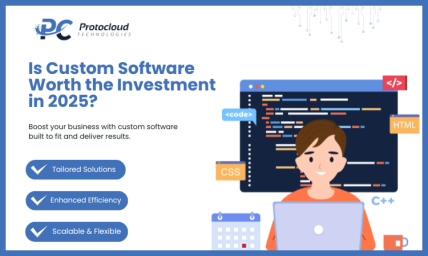What Are Medical Courier Apps?
A medical courier app is a modern digital tool that makes healthcare delivery faster and safer. It supports the delivery of medical supplies, equipment, specimens, and documents.
Medical courier apps help deliver items both to and from hospitals, clinics, labs, and patients’ homes. Think of it as a tool that links every step of the healthcare delivery process.
Why is a Medical Courier App Essential for Healthcare Logistics?

Healthcare logistics is the backbone of every healthcare system. A medical delivery app is not just about moving items from point A to point B. It ensures that every step supports patient safety, timely care, and operational efficiency. Guaranteeing that every patient receives the correct medication, in the right dosage, and at the right time is of prime importance. Modern healthcare app development focuses on these key areas to improve overall healthcare delivery.
A medical courier app is essential for the following reasons:
1. Verify Care Quality
Timely access to medical supplies and medical equipment allows healthcare providers to deliver the best patient care. A reliable app helps verify care quality at every step.
2. Cost Effectiveness
Proper inventory management and a streamlined distribution process reduce waste and minimize costs. Healthcare facilities can save money while ensuring timely delivery of essential items.
3. Regulatory Compliance
Healthcare logistics must follow strict rules for medical product storage, medical product handling, and transportation. A medical delivery app ensures regulatory compliance at all stages.
4. Emergency Preparedness
Efficient logistics systems support rapid response during disasters or crises. A medical courier app ensures essential medical supplies reach the right place on time, supporting timely care when it matters most.
10 Medical Courier Apps to Simplify Your Healthcare

There are many medical courier apps available, which can make choosing one overwhelming. To help, here are ten trusted options.
Each app simplifies deliveries, saves time, and supports healthcare operations. They also highlight how healthcare software development improves modern logistics
1. Track-Pod
Track-Pod is a complete delivery management app. It offers real-time tracking, proof of delivery, route planning, and instant alerts.
With Track-Pod, businesses deliver faster and keep customers happy. It’s among the top medical courier apps today.
Key benefits:
- Better efficiency
- Lower delivery costs
- Clear view of delivery progress
A reliable choice for safe medical delivery.
2. Route4Me
Route4Me is a cloud-based route planning app for any business size. It focuses on drivers, making it a leading medical courier driver app.
It gives simple navigation, quick updates, and easy communication. The app also cuts fuel costs with optimized routes.
Features:
- Mobile courier apps for drivers
- Automated dispatching
- Reports and analytics for smarter planning
A solid choice for fast, cost-saving deliveries.
3. OnFleet
OnFleet is a well-known medical courier app for last-mile logistics.
It provides accurate ETAs, clear communication, and easy scaling for large deliveries.
Highlights:
- Proof of delivery
- API integrations
- Scheduling tools
Ideal for companies needing advanced delivery management.
4. eLogii
eLogii works best for medical parcel delivery and field services. This app lets drivers handle 100+ orders daily. It’s also a top medical courier driver app, with strong security and accuracy.
Advantages:
- Full delivery management
- Flexible pricing
- Smooth operations for both drivers and managers
A safe and reliable choice for digital medical delivery.
5. Routific
Routific is an independent app with strong route optimization. It uses a per-driver pricing model, which is flexible for teams.
It also works as a medical courier management system, helping plan routes and track drivers in real time.
Benefits:
- Simple interface
- Real-time links for customers
- Smart route planning
Perfect for efficient and transparent deliveries.
6. GSM Tasks
GSM Tasks is a flexible healthcare courier app. It allows unlimited orders under its plans.
This app uses per-user pricing and supports dispatchers, drivers, and managers.
Features:
- Smart task assignment
- Custom workflows for healthcare teams
- Reports to track and improve performance
A strong tool for different healthcare courier needs.
7. Circuit
The circuit is built for small and mid-size delivery teams. It’s one of the best medical courier apps for organized deliveries.
Highlights:
- Real-time customer tracking
- Proof of delivery
- Performance insights and alerts
It simplifies operations and keeps deliveries safe.
8. Kosmo
Kosmo is a premium healthcare courier app with a clean design and simple integration. It handles 300+ orders monthly.
You can even add your own drivers for a custom setup.
Advantages:
- Multi-stop smart routing
- Scalable deliveries
- High efficiency
A modern medical courier platform. Kosmo shows how medicine app development improves logistics.
9. Detrick
Detrick is built for real-time, last-mile tracking. It makes delivery management simple with electronic proof of delivery (ePOD).
It fits businesses of any size and boosts customer satisfaction.
Benefits:
- Strong efficiency
- Lower costs with better logistics
- Reliable tracking
A smart choice for last-mile healthcare logistics.
10. Tookan
Tookan is a customizable courier app. It adapts to varied logistics needs and supports 200 tasks monthly in its base plan.
It also integrates with Mappr for advanced route optimization.
Why choose Tookan?
- Flexible management
- Scalable delivery options
- Trusted courier app for healthcare
A top pick for modern medical delivery apps.
How to Develop a Medical Courier App: A Step by Step Process

1. Planning and Research
Start by defining your goals, target audience, and essential features for the Medical Courier App. Do clear market research. Check competitors, see what they offer, and find gaps. Look for ways to stand out and get an edge.
Next, decide the scope of your app. Choose the platforms: iOS, Android, and web. Plan any healthcare systems integration. Don’t forget HIPAA compliance. Include proper security measures and privacy measures from the start. Strong healthcare app development begins with clear planning.
2. Design and Prototyping
Focus on creating an intuitive interface and smooth user experience (UX). Make it simple for senders (hospitals, labs, clinics) and couriers to navigate. Key information should be easy to find.
Use wireframes and prototypes to show the app flow. Collect early feedback and make iterative improvements before full development. Good design makes the app easier to use and reduces errors later.
3. Development
Once planning is done, start development. Pick the right technology stack, including programming languages, frameworks, and databases based on your app’s needs and growth plans.
Development includes:
- Backend: server logic, database, and APIs
- Frontend: user interface
- Integration with third-party services like mapping APIs, payment gateways, and other healthcare systems
Following proper healthcare app development practices ensures the app is reliable, scalable, and easy to maintain.
4. Testing and Quality Assurance
Testing is very important. It finds bugs, improves stability, and boosts performance. Use different types of testing:
- Unit testing for small parts
- Integration testing for combined modules
- User acceptance testing (UAT) for real users
Also perform security testing and penetration testing. Protect sensitive medical data from cyberattacks. Good testing makes the Medical Courier App safe and reliable.
5. Deployment
After testing, it’s time to launch. Prepare app store listings with clear screenshots, marketing materials, and user documentation.
Deploy the Medical Courier App to Google Play Store and Apple App Store for your target audience. A smooth launch makes it easy for users to download and start using the app.
6. Post-Launch
Post-launch work continues. Monitor user feedback, app usage data, and performance metrics. Spot areas for feature development.
Keep the app updated with bug fixes, security updates, and performance enhancements. Regular maintenance keeps the Medical Courier App running smoothly. Continuous improvement is a key part of healthcare app development.
Features of Medical Courier Apps

1. Pickup and Drop Off
Multi-stop route planning is a key feature in medical courier apps. It improves delivery logistics and makes the process smoother.
Choose apps that support seamless pickup management for boxes. This boosts efficiency and creates a better user experience.
2. Scanning Barcodes
Barcode scanning ensures every package reaches the right place safely. It’s especially important for fragile or time-sensitive medical items.
3. Schedules
In every medical delivery app, precise scheduling is a must. It plays a key role in both B2B and consumer operations.
The app should offer clear time slots so users can easily choose their delivery times.
4. Prioritizing Orders
Medical supplies are often time-sensitive. That’s why urgent orders must always be delivered on time.
A good medical delivery app should allow marking urgent orders. This ensures they get delivered first.
5. Safety Checklist
Every independent medical courier app should include a digital safety checklist. It must cover product, vehicle, and driver safety before each delivery.
A customizable checklist boosts efficiency and makes deliveries safer.
6. Tracking Updates and Notifications
The most important feature of a last-mile medical courier app is live tracking updates.
Companies should send tracking alerts by SMS or email. These updates must include pickup, route, and ETA details to ensure smooth delivery.
7. Recurring Routes
Medical facilities often follow regular delivery schedules. Transporting medical items becomes easier when routes are planned.
With recurring routes, dispatchers can replicate existing routes. This improves scheduling speed and saves time.
8. Customer Portal
A strong medical courier app should always include a customer portal. It must include login, simple order management, and options for delegate order entry.
This helps medical companies handle operations more effectively.
9. Role of Healthcare App Development
All these features are possible with strong healthcare app development. It ensures apps are secure, fast, and user-friendly. This ensures smooth logistics and better healthcare delivery.
Benefits of Medical Courier Apps

New-age medical courier apps offer clear advantages compared to traditional methods of delivering medical supplies. They are faster, safer, and more reliable.
1. Rapid Delivery
The main benefit of an independent medical courier app is Rapid Delivery.
It manages urgent deliveries by optimizing routes so products reach their destination on time. This speed is vital for time-sensitive medications, life-saving equipment, and urgent transplant help.
In modern healthcare app development, this feature is designed to save lives.
2. Secure Handling
These apps focus on the Secure Handling of medical items. They protect sensitive specimens and fragile equipment with tools like temperature control, driver training, and secure seals.
This approach reduces risks and ensures every delivery arrives in perfect condition.
3. Enhanced Tracking
Enhanced Tracking is another powerful feature. In healthcare apps, the real-time tracking feature allows both medical patients and professionals to check the status of deliveries.
This visibility builds trust, increases transparency, and reduces stress for everyone.
4. Flexibility
Modern medical courier apps also provide Flexibility.They support scheduling deliveries for special times such as off-hours pickups or same-day drop-offs. This helps meet the specific needs of hospitals, clinics, and individual customers.
Flexibility makes operations smooth for both providers and patients.
5. Regulatory Compliance
Healthcare apps must follow strict rules to keep patient information safe. This includes HIPAA standards in the U.S. Following these rules protects privacy and builds trust.
Medical Courier App Development Cost Breakdown
Developing a medical courier app requires careful planning and investment. A clear cost breakdown helps you see how each feature adds value. Security, speed, and compliance are all important in healthcare logistics.
Here’s your Development Component cost breakdown in bullet form for easier readability:
| Development Component | Estimated Cost (USD) | Description |
| App Platform (iOS/Android) | $8,000 – $15,000 per platform | Developing the app for iOS and Android platforms. Wider reach often requires building both. |
| UI/UX Design | $5,000 – $12,000 | Creating a user-friendly interface and visually appealing design for smooth user interaction |
| Backend Development | $10,000 – $25,000 | Building the server, database, and APIs that handle all app operations securely and efficiently. |
| Admin Panel Development | $7,000 – $12,000 | A control panel for managing app users, orders, and content to simplify operations. |
| Core Features Development | $15,000 – $30,000 | Integrating order tracking, payment gateways, notifications, and route optimization. These are must-have features. |
| Advanced Features (AI & Analytics) | $10,000 – $25,000 | Adding AI-based route optimization, predictive analytics, and demand forecasting for smarter logistics. |
| Third-Party API Integration | $5,000 – $10,000 | Using APIs for payment, GPS, and communication services. This saves time and adds reliability. |
| Testing and QA | $7,000 – $15,000 | Running tests to ensure a bug-free app with strong performance on all devices. |
| Deployment & Launch | $3,000 – $8,000 | Publishing the app on app stores and handling the server setup. |
| Post-Launch Maintenance | $2,000 – $5,000 per month | Covering bug fixes, updates, and performance monitoring after launch. |
Total Estimated Cost
- Basic Version App Cost: $60,000 – $75,000
- Advanced Version App Cost: $100,000 – $150,000
Why Choose Protocloud Technologies ?
At Protocloud, we specialize in creating feature-rich, scalable, and secure medical courier apps tailored to your business needs. We focus on building customized solutions that align with the rising demand for healthcare app development.
Our team uses the latest technologies and industry knowledge to build apps that are reliable, easy to use, and help your business run smoothly.
So, whether you need a basic app to get started or a fully customized solution with advanced features, Protocloud has you covered.







Leave a Reply